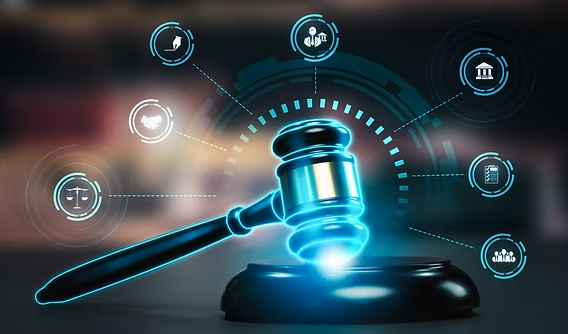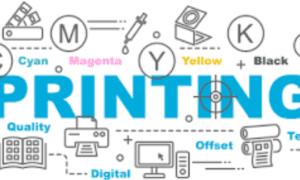The legal world has always been seen as slow to change. Heavy paperwork, complex jargon, and long wait times made law offices feel outdated compared to other industries. But in 2025, that’s no longer the case. LegalTech—technology made for legal services—is transforming how lawyers and clients work together. It’s making legal help faster, more affordable, and easier to understand.
Today’s clients expect on-demand updates, online portals, and easy communication. Law firms that use LegalTech are not just meeting those expectations—they’re raising the bar. From AI-driven document tools to smart scheduling and virtual court prep, the legal experience is finally catching up to the digital age. That’s good news for clients and for lawyers looking to build stronger, more responsive practices.
A Digital Shift in Law
In 2025, LegalTech isn’t a trend—it’s a standard. Tools like client dashboards, e-signatures, AI legal assistants, and automated case tracking are making law firms more efficient and more transparent. These systems also help reduce errors and save time. For clients, it means less confusion and more control.
For example, immigration law—a field known for paperwork and long processing times—is being transformed through tech. Clients now track their case status online, receive instant updates, and even upload key documents from their phones. Lawyers, meanwhile, use AI tools to spot issues faster, prepare filings quicker, and manage growing caseloads without dropping the ball.
Loren Locke, Founder of Locke Immigration Law, explains how tech helps simplify high-stress cases:
“As a former consular officer, I know how overwhelming the visa process can feel. Now, we use digital tools to break down each step for our clients—timelines, checklists, updates—all in one place. One client recently told me it was the first time they didn’t feel lost during their visa process. That’s why I built my firm this way: to give people clarity when they need it most.”
Speed, Simplicity, and Security
Clients no longer want to wait three days for a call back or dig through piles of legal documents. LegalTech platforms now offer secure portals where everything from case history to billing is just a few clicks away. For law firms, this means fewer missed deadlines and more meaningful time spent advising clients—not chasing paperwork.
Another major benefit is digital security. Paper files and email chains are being replaced by encrypted systems that protect private data and make compliance easier. As cybersecurity concerns grow, especially in sensitive areas like insurance and finance, LegalTech is becoming a vital tool for trust.
Gregory Rozdeba, CEO of Dundas Wealth, sees the shift in how legal and financial services overlap:
“We work closely with legal teams to make sure our clients’ insurance plans are ironclad. I’ve seen LegalTech make it easier to keep documents updated and compliant without endless back-and-forth. One time, a client needed urgent policy changes for a business acquisition—we had everything signed and reviewed in under 48 hours thanks to integrated tools. It’s not just speed—it’s peace of mind.”
Personalized Experiences, Not Just Legal Advice
What sets modern law firms apart isn’t just how fast they work—it’s how personally they treat their clients. With the help of LegalTech, lawyers can tailor their services more closely to each client’s needs. Smart intake forms help identify client goals. CRM software lets firms stay in touch with clients before, during, and after a case. And AI-powered analytics help firms predict common legal needs and offer solutions before problems grow.
Instead of feeling like a number, clients feel seen. They get clear updates, honest timelines, and tools that make them part of the process—not just bystanders. And that builds long-term trust.
James Inwood, Insurance Broker at James Inwood, highlights how tech helps bridge gaps between legal and financial advice:
“Many of my clients need both insurance and legal advice. We’ve started working with lawyers who use LegalTech platforms, and the difference is huge. A client recently told me it was the first time they didn’t have to ‘chase’ updates—everything was right there in the portal. This kind of collaboration saves time and shows clients we’re working together with their best interest in mind.”
The Future: Smarter, Faster, Friendlier Law
LegalTech continues to grow in 2025, and it’s not slowing down. Firms are now using AI to help draft contracts, chatbots to answer common client questions, and data analytics to improve outcomes. Remote consultations are becoming normal, and clients no longer feel limited by geography. You can hire the best lawyer for your case—even if they’re in another city.
As this tech continues to develop, law firms that embrace it will win more trust, handle more cases, and deliver better results. Meanwhile, those that resist risk falling behind.
Still, LegalTech isn’t about replacing lawyers—it’s about making them more effective. The tools are powerful, but it’s the people behind them who make the real difference.
Conclusion: A Legal Experience Built for Clients
LegalTech is more than just software. It’s a full shift in how the legal world operates—putting the client at the center. In 2025, clients expect more than legal advice. They expect clarity, communication, and convenience. With the right tools, law firms can deliver on all three.
Experts like Loren Locke, Gregory Rozdeba, and James Inwood are proving that blending technology with personal service isn’t just possible—it’s powerful. Whether you’re dealing with visas, insurance, or contracts, the future of law is faster, clearer, and more client-friendly than ever.
If you’re looking for legal help in 2025, make sure your lawyer isn’t just smart—but also smart enough to use the right tech. Because in today’s legal world, a good case starts with a great client experience.
Read More From Techbullion





























